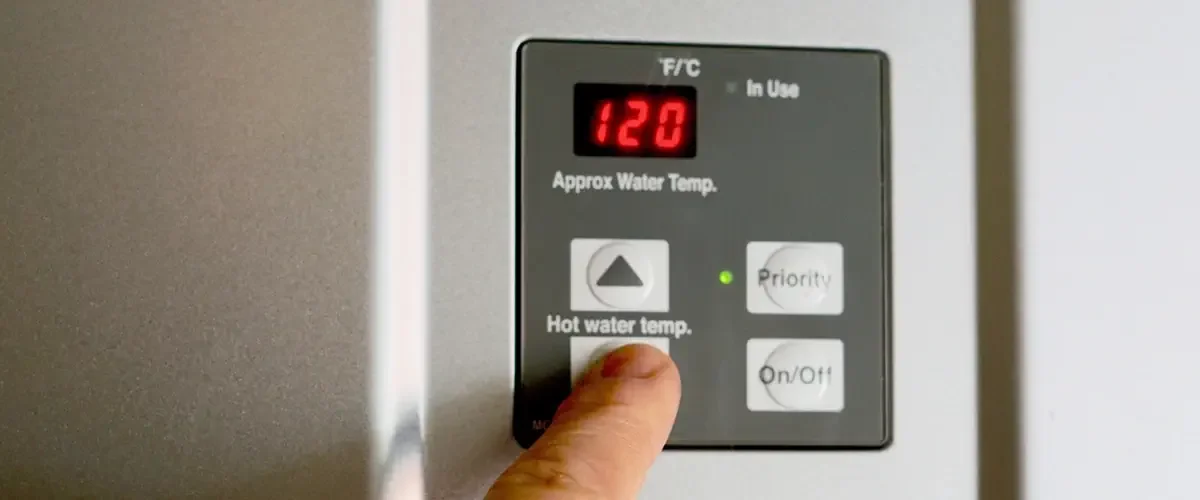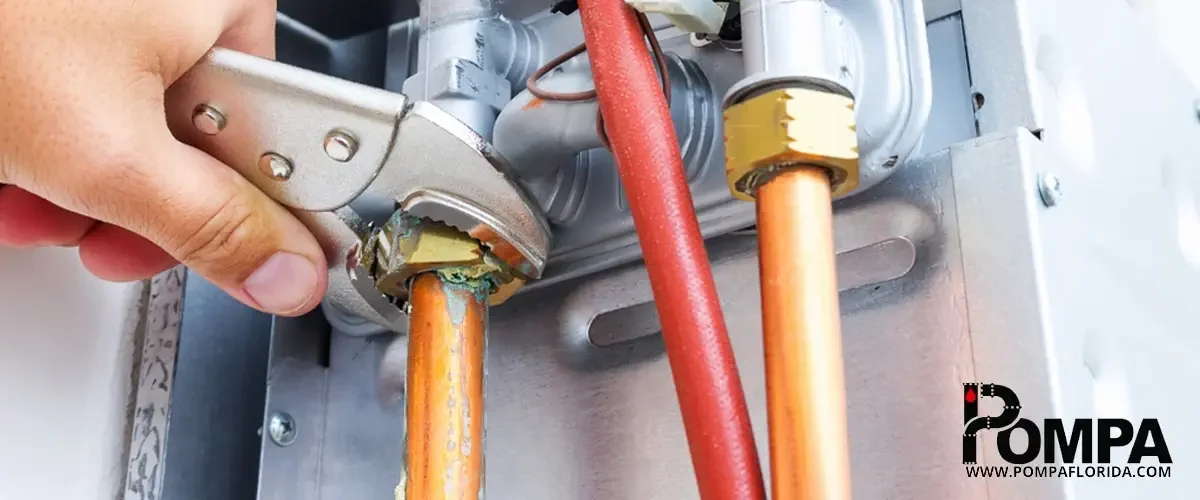Troubleshooting Common Water Heater Problems
August 25, 2023
A reliable water heater is an essential appliance in any home, ensuring a comfortable living environment through warm showers and efficient cleaning. However, like any mechanical system, water heaters can encounter problems over time. As a homeowner, it’s crucial to understand these issues and their potential solutions to maintain the functionality of your water heater and avoid unnecessary inconveniences. While some problems can be tackled through DIY troubleshooting, it’s always advisable to consult a professional water heater maintenance company, such as Pompa Plumbing, for complex issues.
In this article, we’ll delve into the five most common water heater problems, discuss their diagnostic steps, and emphasize the importance of seeking expert help.

No Hot Water
One of the most frustrating problems homeowners face is a lack of hot water. Before panicking, it’s important to perform a step-by-step diagnosis. First, check the pilot light (if you have a gas water heater). If it’s out, relight it following the manufacturer’s instructions. For electric water heaters, make sure the circuit breaker hasn’t tripped. If these components are working fine, sediment buildup at the bottom of the tank could be causing the issue. Over time, sediment accumulation can insulate the heating element from the water, leading to inadequate heating.
To address this, turn off the heater, shut off the water supply, and drain the tank partially to remove sediment. However, if these troubleshooting steps don’t resolve the problem, it’s advisable to contact a professional technician like us!
Inadequate Hot Water
If you’re experiencing consistently lukewarm or not-hot-enough water, your water heater might be struggling with inadequate heating. This could be due to a malfunctioning thermostat, which controls the temperature of the water. Start by checking the thermostat settings on the water heater; they might have been accidentally lowered. If the settings seem correct, you can perform a thermostat test using a thermometer. Be cautious while doing this and follow the manufacturer’s guidelines. If the thermostat is indeed faulty, it’s recommended to have it replaced by a professional.
Additionally, a buildup of sediment or a deteriorating heating element can also cause insufficient heating. Flushing the tank and replacing the heating element might solve the issue, but it’s a task best left to professionals, as it involves electrical components and potential hazards.

Strange Noises
Unusual noises coming from your water heater can be alarming. These sounds, such as rumbling, popping, or hissing, often indicate sediment buildup within the tank. As water heats up, the sediment hardens and creates these noises as it’s heated. Over time, this sediment can lead to reduced efficiency and even tank damage. To address this, follow the steps mentioned earlier to drain the tank and remove sediment.
If the noises persist, it could be due to a failing heating element or uneven pressure within the tank. These issues require technical expertise to resolve, so it’s advisable to consult a professional technician.
Water Leaks
Water leaks around your water heater demand immediate attention, as they can lead to water damage and mold growth. The source of the leak could be a faulty temperature and pressure relief valve, loose or damaged connections, or a corroded tank. Start by checking the connections and valves for visible signs of leakage.
If you’re unable to identify the source of the leak, it’s best to turn off the water heater and the water supply and call a professional plumber. Attempting to fix a leaking water heater without proper knowledge can exacerbate the problem and lead to costly repairs.

Professional Tip
Flush your water heater annually to remove sediment buildup, and keep an eye out for leaks, rust, or strange noises to catch potential issues early.
Rusty Water
Discovering rusty or discolored water flowing from your taps can be concerning. While it might be tempting to blame the water heater immediately, rusty water can also originate from corroded pipes. To diagnose the issue, fill several buckets with hot water from various faucets. If the rusty water persists with hot water only, the problem likely lies within the water heater. Sediment buildup can accelerate corrosion, leading to rusty water. Flushing the tank as previously mentioned might help.
However, if the issue persists, it could signify an internal tank corrosion problem, which requires professional intervention. Remember, when dealing with water heater problems, especially those related to water quality, consulting experts like Pompa Plumbing is a prudent choice to ensure the safety of your water supply.
Conclusion
A functional water heater is essential for the smooth functioning and comfort of your home. When faced with common water heater problems, it’s important to approach troubleshooting with a systematic and cautious mindset. While some issues can be resolved through DIY measures, such as checking the pilot light or adjusting thermostat settings, homeowners should always prioritize safety and seek professional assistance for more complex problems. Companies like Pompa Plumbing offer the expertise needed to diagnose and address water heater issues effectively.
Regular maintenance, professional inspections, and prompt repairs are the pillars of a reliable and efficient water heater system, ensuring your home continues to enjoy the benefits of warm and consistent hot water.


